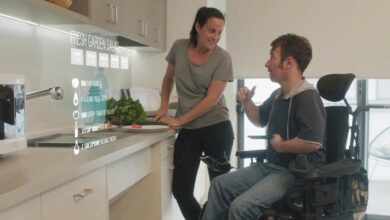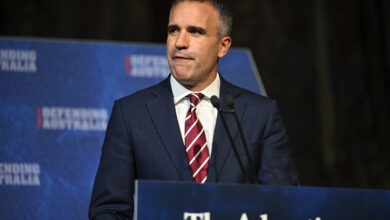Action is long overdue, ageing expert calls for a UN Convention to protect the rights of older people

There is compelling evidence that the human rights of older people continue to be violated globally. Never has this reality been more clearly exposed than through the pandemic period.
People have been discriminated against because of their age in relation to health care, access to essential services and resources, and denied the rights of liberty and dignity. COVID-19 didn’t create ageism, but it has highlighted just how widespread and rampant this form of prejudice is.
Systems and societal responses to the pandemic have led to unnecessary deaths, increased poverty and elevated discrimination against older people. Associated organisations, in particular those across Europe and North America who provide services to older people, have evidenced the widespread death and suffering during this time due to the violation of the human rights of older adults.
More needs to be done to strengthen the protection of older people’s rights.
Last month, the United Nations held the 11th session of the Open Ended Working Group on Ageing (OEWG) – a forum established by the UN's General Assembly – after being postponed for 12 months in the midst of COVID-19. When the session did run, it became the first OEWG session to take place largely through the UN’s online platforms.
This posed a set of unique challenges, those associated with any technology reliant event, but also gave extraordinary opportunities for truly global input. Addressing this session, I advocated for the introduction of a UN Convention to protect the rights of older people, on behalf the Global Ageing Network and in support of the Global Alliance for the Rights of Old People (GAROP).
Similar to conventions that inter alia protect the rights of children and people living with disabilities, we believe a legally binding international convention will codify the rights of older people everywhere serving as a vital tool for both protection and empowerment. A convention is no longer a marginal issue that national governments can ignore.
The UN’s own report on Global Ageism and Human Rights Working Paper provided further detail of the sad realities across the world when it comes to older people and the protection of their rights. Further, 146 nations supported the policy brief of the UN Secretary General, which called for accelerating efforts to develop proposals for an international legal instrument. Disappointingly, Australia along with many other ‘developed’ countries at the UN meetings again failed to support greater protection for the rights of older people. Indeed, Australian representatives did not even turn up to the main discussions!
In addition to the broader issues of rights and ageing at each OEWG session, more specific topics are also examined. This session featured an analysis of the impacts of COVID-19, and the new topics of “Right to Work and Access to the Labour Market” and “Access to Justice”. Focus also returned to previous subjects, Education and Social Protection, and how these issues must be addressed for people across the whole course of life.
Notably, the opening of this session saw unprecedented high-level input, from the likes of the President of the General Assembly and the UN High Commissioner for Human Rights. This signalled the significance of the issues affecting older people globally as did the strong engagement from the NGO community and National Human Rights Institutions.
Whilst much of the participation throughout the session showed an increased urgency for progress to be accelerated and for the convention drafting process to begin, no decisions were formalised as to next actions. The fact that the closing meeting of the session took 1 hour and 45 minutes to reach a quorum (of Member States) was disturbing. It was agreed that the new topics to be discussed at the 12th OEWG session will be ‘Economic security’ and the ‘Contribution of older persons to sustainable development’.
The rallying campaign – “Age with Rights!” – was formed with input from members of our Global Alliance prior to the aforementioned UN session. The opportunity will exist for all of us to join this global campaign for a UN convention on the rights of older people to ensure equal protection of our human rights in older age.
The campaign is based on the context that human rights are rights inherent to all human beings throughout life, no matter where in the world and that as we age, our need for rights protection evolve with the complexity of ageing issues. The reality is that the Universal Declaration of Human Rights document was drafted at time when the “100 year” life was beyond imagination. Existing human rights frameworks and national laws are failing older people everywhere and allowing discrimination, neglect and inequality to continue unabated.
The pandemic period did not create ageism or the need for a convention, but it has forced us to take action as a global community.
Ageism must end now. Older people deserve to age with dignity and rights.
Marcus Riley is a positive ageing advocate and is the past chair and current Director of the Global Ageing Network based in Washington DC, and Chairman of BallyCara, a charitable organisation which provides accommodation, health, and care services for older people.
Email: [email protected]





